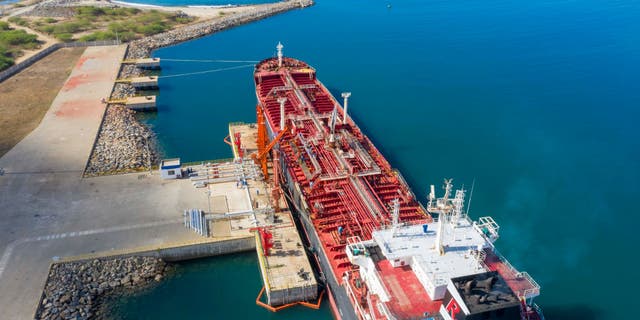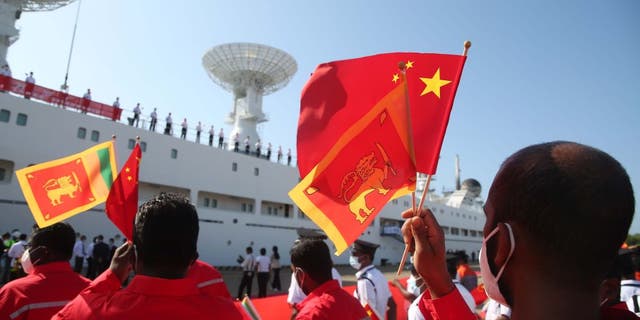Chinese loans with secretive and unforgiving terms are threatening to cripple multiple developing countries whose concessions to China could begin to have implications for U.S. national security.
“The Chinese Communist Party’s strategy to expand its influence across the Pacific has been to coerce and cut deals,” Joel Rubin, who has served in administrations from both parties, most recently as deputy assistant secretary of state for the Obama administration, told Fox News Digital. He added that the Chinese target “countries that have strategic importance for the navy, in particular for basing.”
Rubin’s comments come as concerns grow over the impact of Chinese loans to developing countries, particularly in locations where China has leveraged its position to take control of ports and natural resources to benefit the country’s growing ambitions.
According to a report from Fortune this month, a dozen countries are staring down the barrel of economic instability or collapse under the weight of loans they received from China, including Pakistan, Kenya, Zambia, Laos and Mongolia.
Perhaps the most famous example of the Chinese debt trap is the Hambantota International Port in Sri Lanka. Opened in 2010, a 70% stake of control of the port was eventually sold to Chinese company China Merchants Port to pay off sovereign debt unrelated to the construction or operations of the port. As part of the deal, a 99-year lease was signed that gave control of the port to China despite the objections of those who felt the deal eroded Sri Lanka’s sovereignty.

A ship is docked at Hambantota International Port in Sri Lanka. (Liu Hongru/Xinhua via Getty) (Xinhua/Liu Hongru via Getty Images)
The deal came just a few years before Sri Lanka defaulted on its debt, with Fortune estimating that 50% of those foreign loans were from China and that a third of the government’s revenue was going toward paying off foreign debt.
The default has sparked an economic crisis in Sri Lanka by costing the country roughly 500,000 jobs, contributing to soaring inflation and sending much of the country’s population into poverty. Meanwhile, China has gained control of a strategically important port in the Indian Ocean that helps connect a lucrative trade route.

People welcome China’s space-tracking ship Yuanwang-5 at Hambantota International Port in Sri Lanka. (Ajith Perera/Xinhua via Getty Images)
“One of the lessons learned from the Cold War era is that countries love to play off the big dogs against each other,” Rubin said.
Rubin noted that not only would it be impractical for the U.S. to “chase every country” while waving “Uncle Sam’s dollars,” such a strategy would not change the long-term outlook of the situation. Instead, Rubin argued that it is vital for the U.S. to develop partnerships with developing countries that make them less likely to turn to China for help.
“The idea is to have them say no. I think this is one of the interesting questions about national security: How do we advance our national security?” Rubin said. “Is it just putting money into defense? No.”
Drafted in 2015, the deal faced heavy pushback from factions of both parties, leading to its eventual demise.
“That trade agreement was one major strategic step to try to create an architecture across the Pacific Rim countries of connectivity through economic and trade actions,” Rubin said. “That kind of reduces the incentive of countries to cut deals with China because there may be penalties because there are positive alternatives.”
Although Rubin noted a similar trade deal is unlikely to materialize again anytime soon, he argued that any U.S.-led effort to push regional agreements that “web together” countries makes them less likely to turn to China and more likely to depend on each other.
“China is playing the long game. China has been thinking about this for decades, and they’re thinking about this for decades out,” Rubin said, adding that the American strategy should be to respond with more than defense spending in mind.
“It’s not a trade-off, like one or the other. You should and could and need to do both,” Rubin said. “The last thing you ever want is an actual war, right? So, we have to build confidence.”

